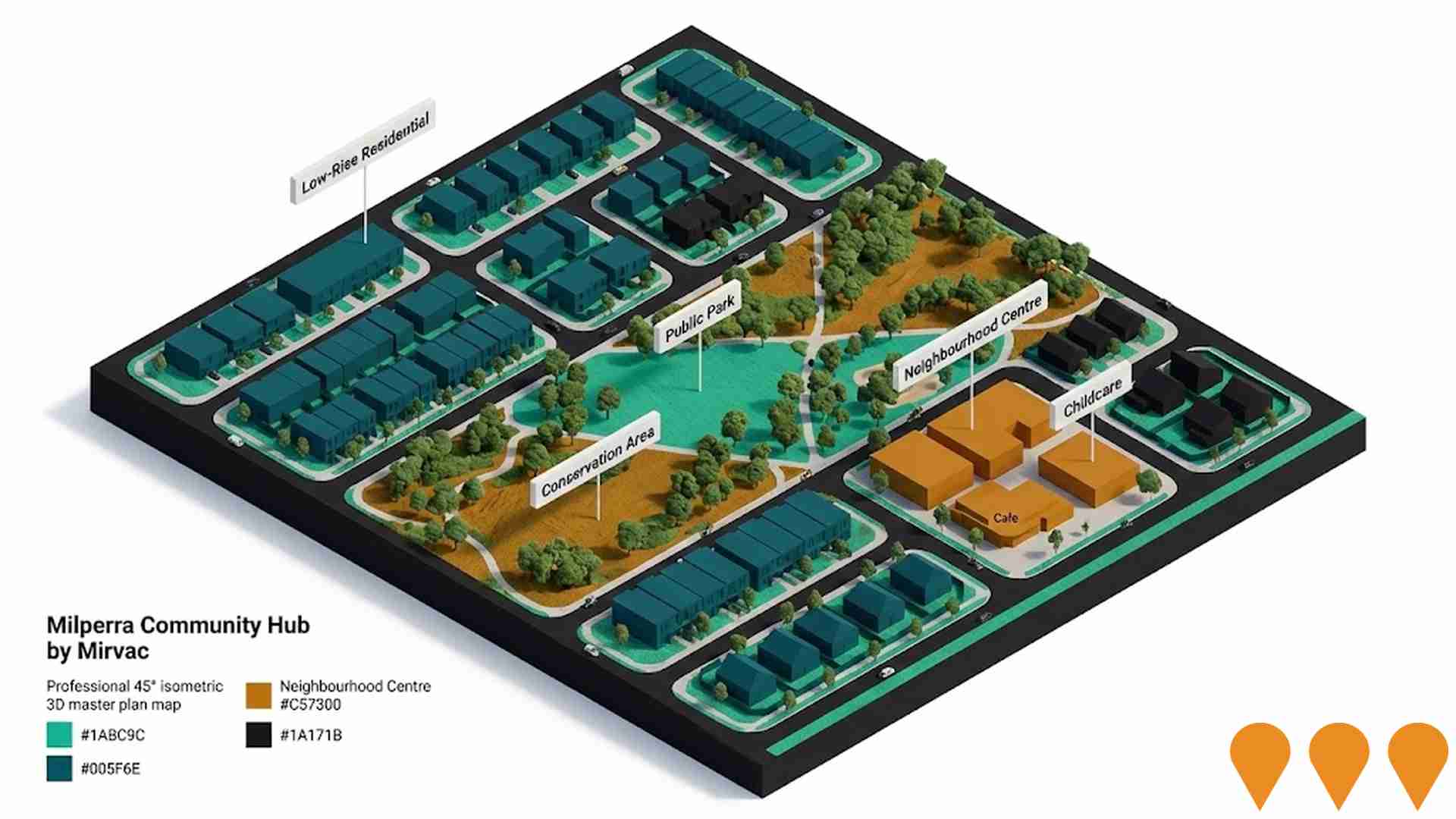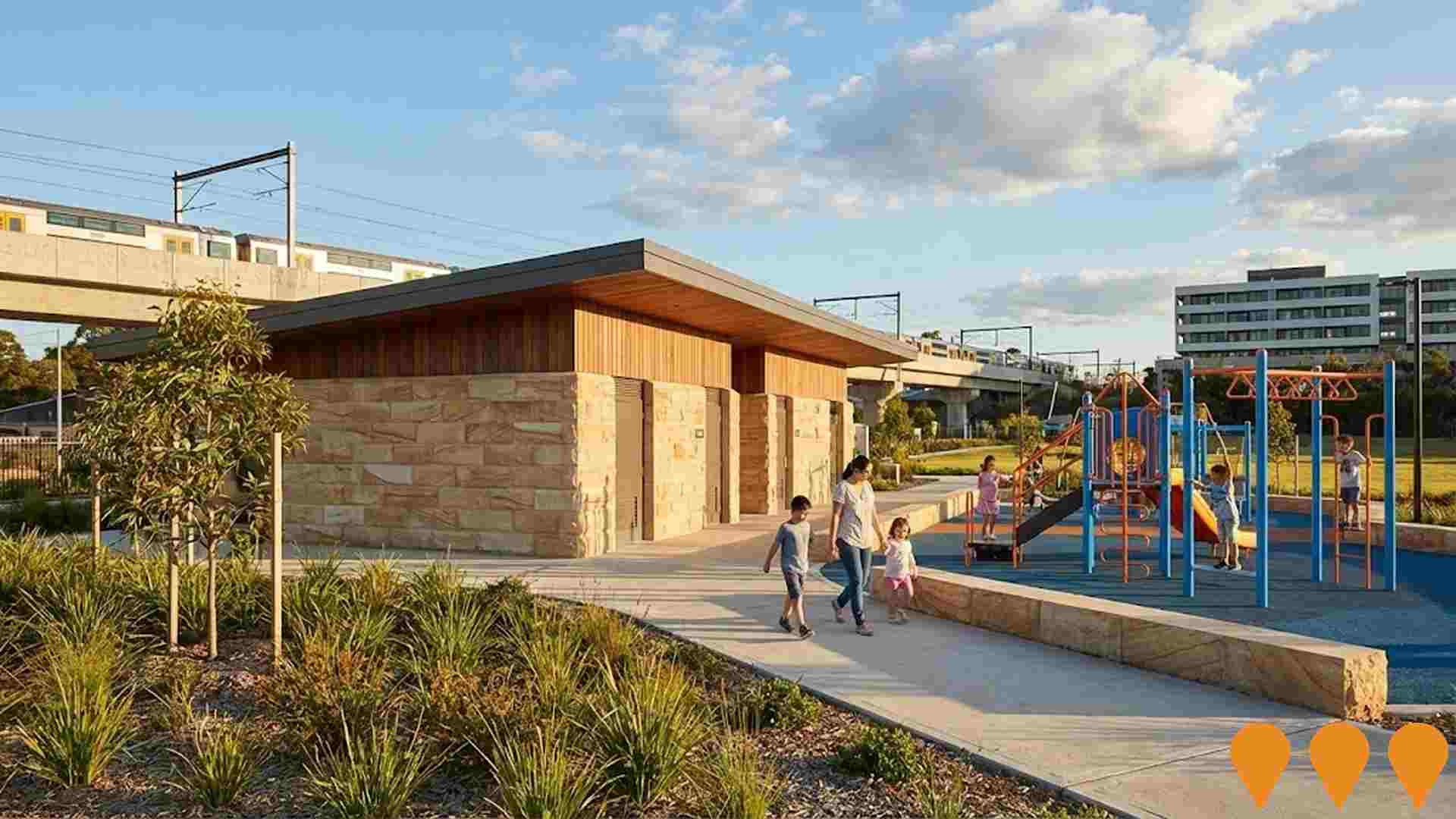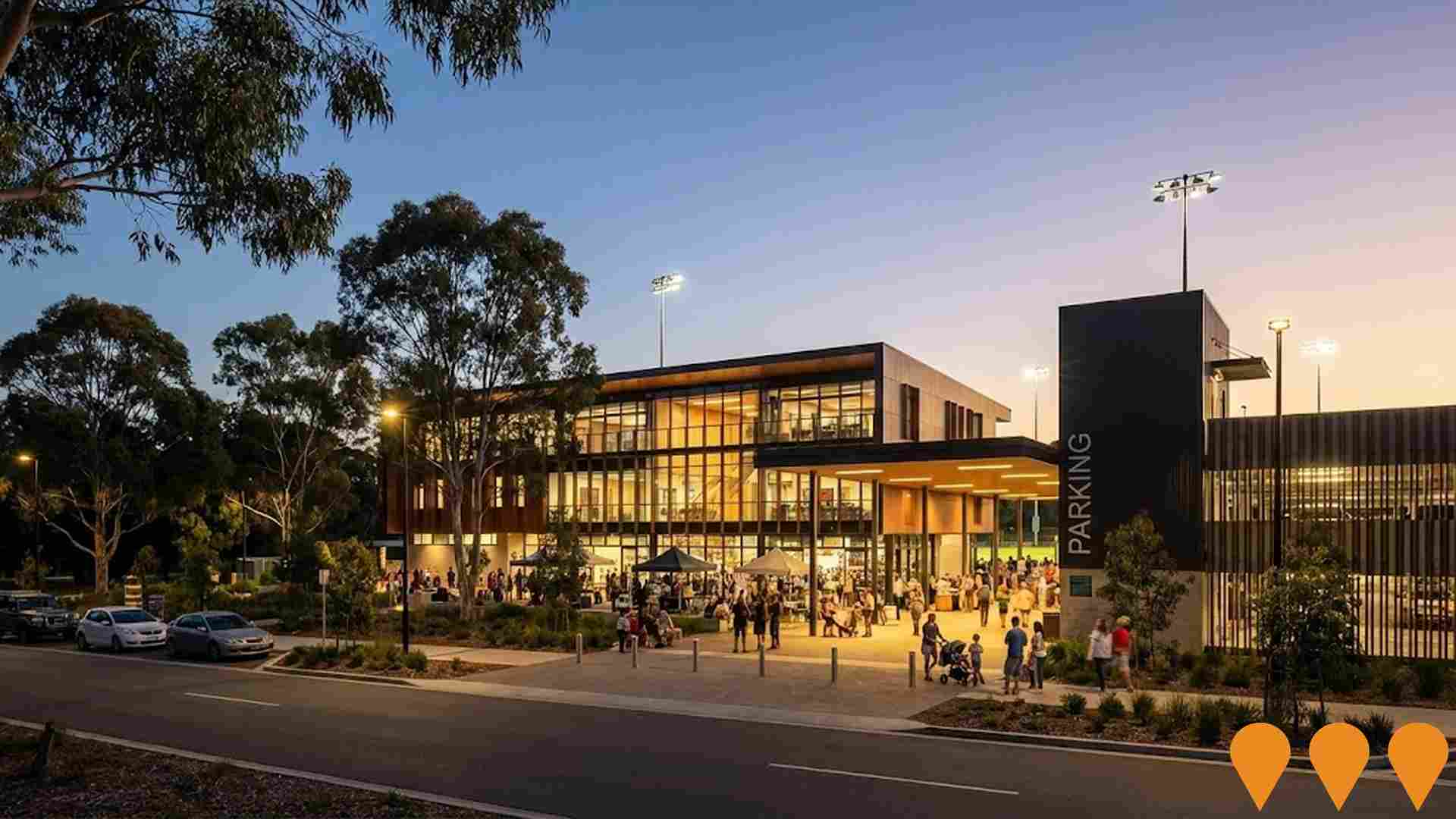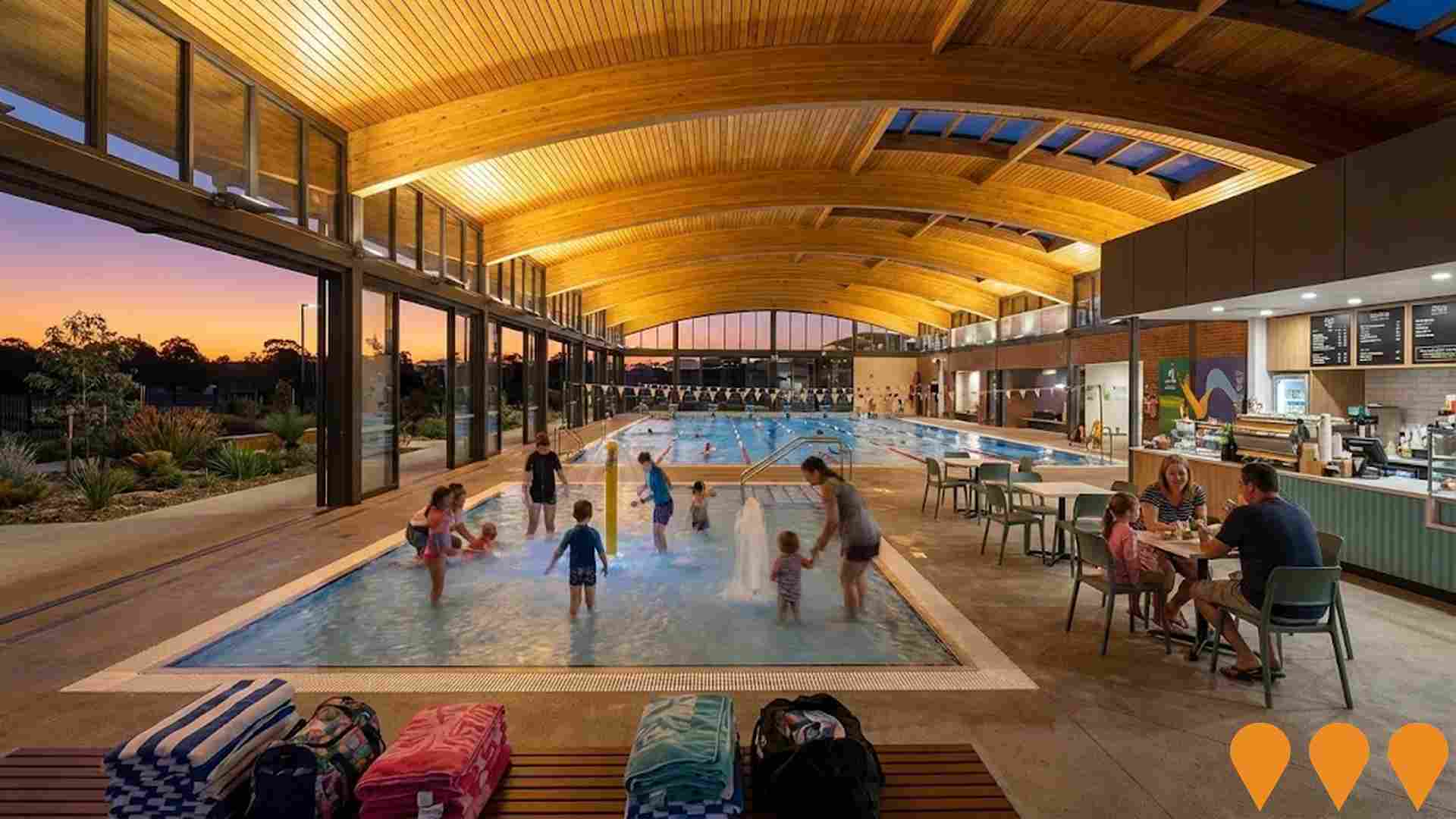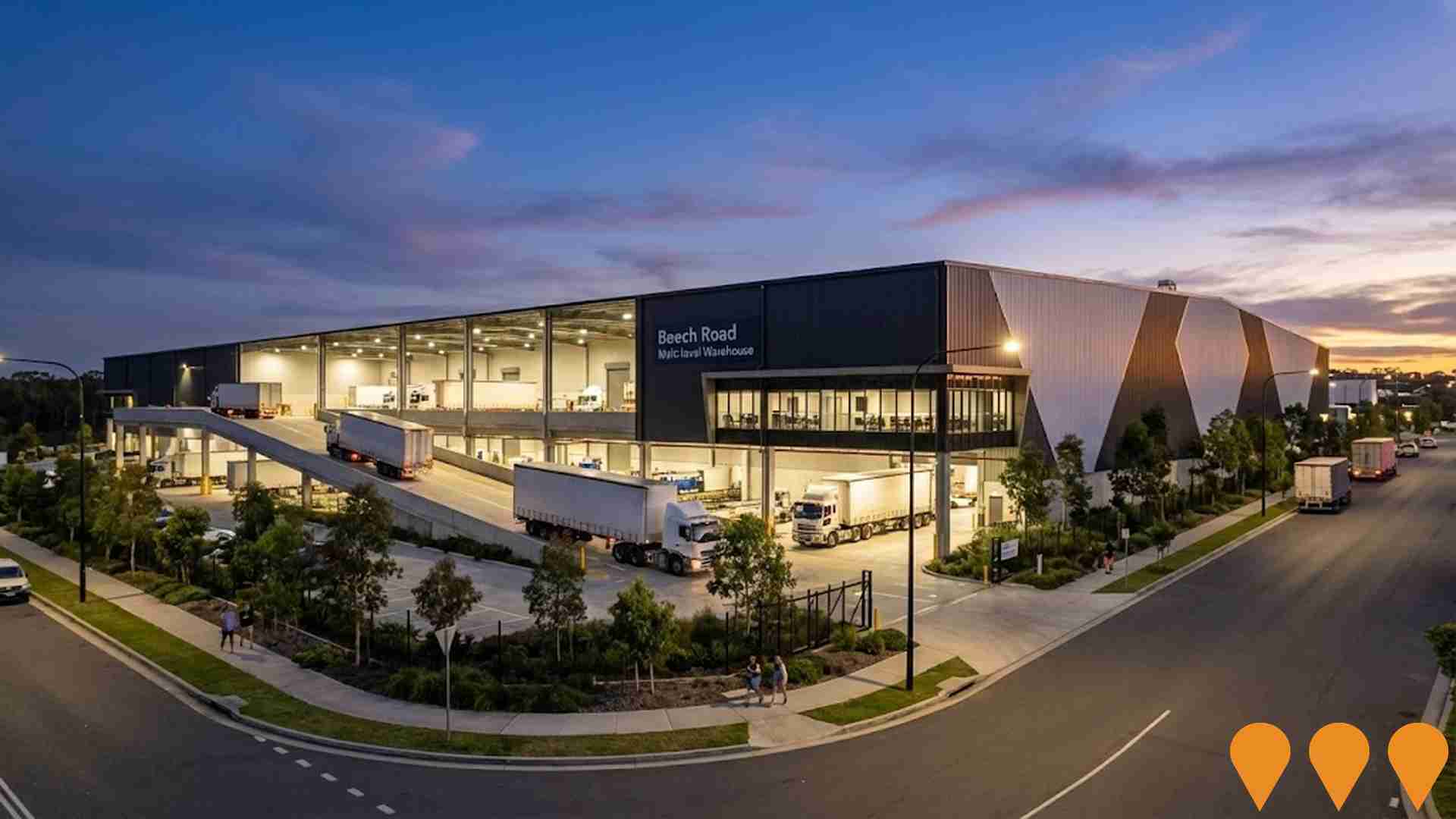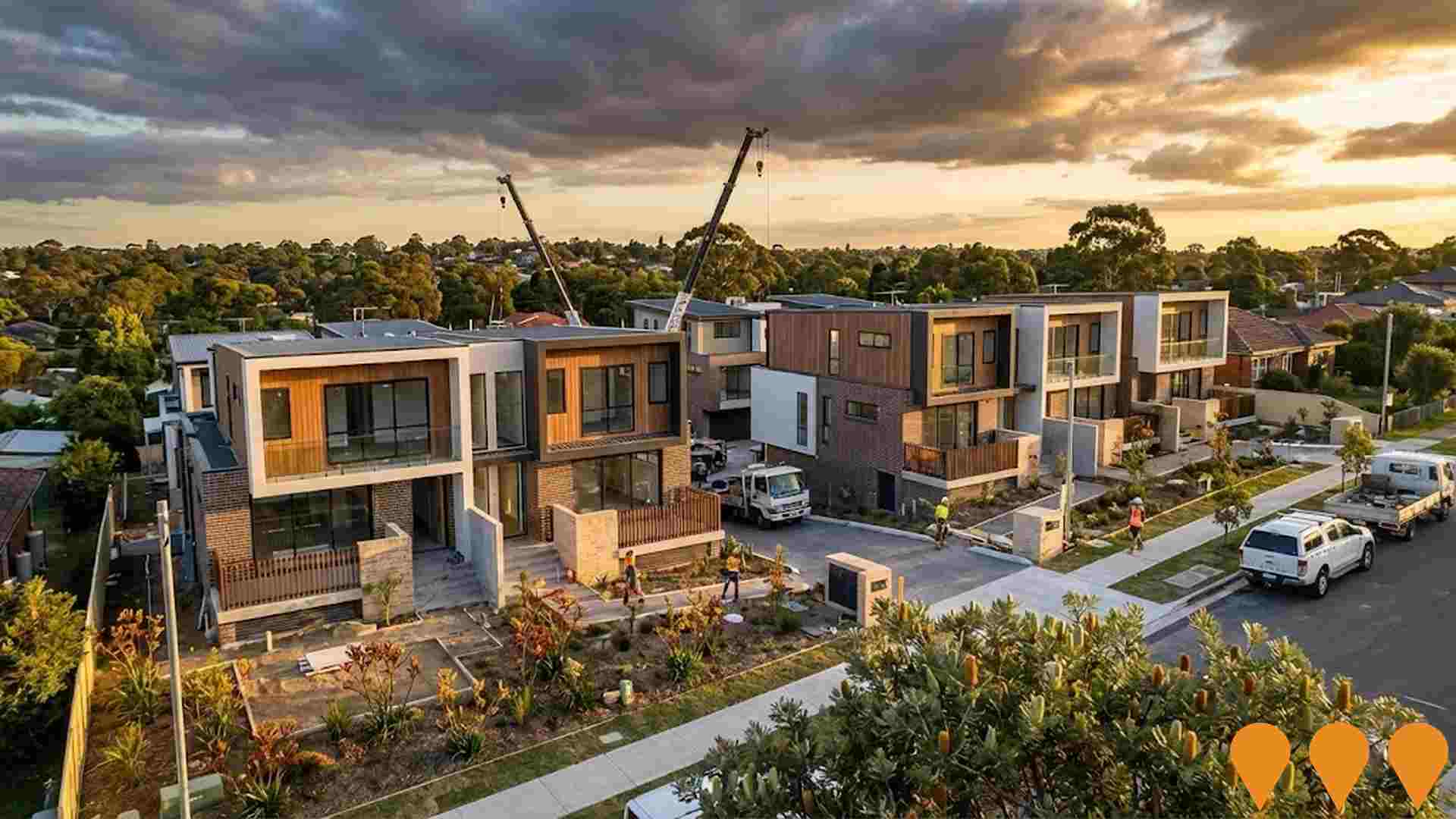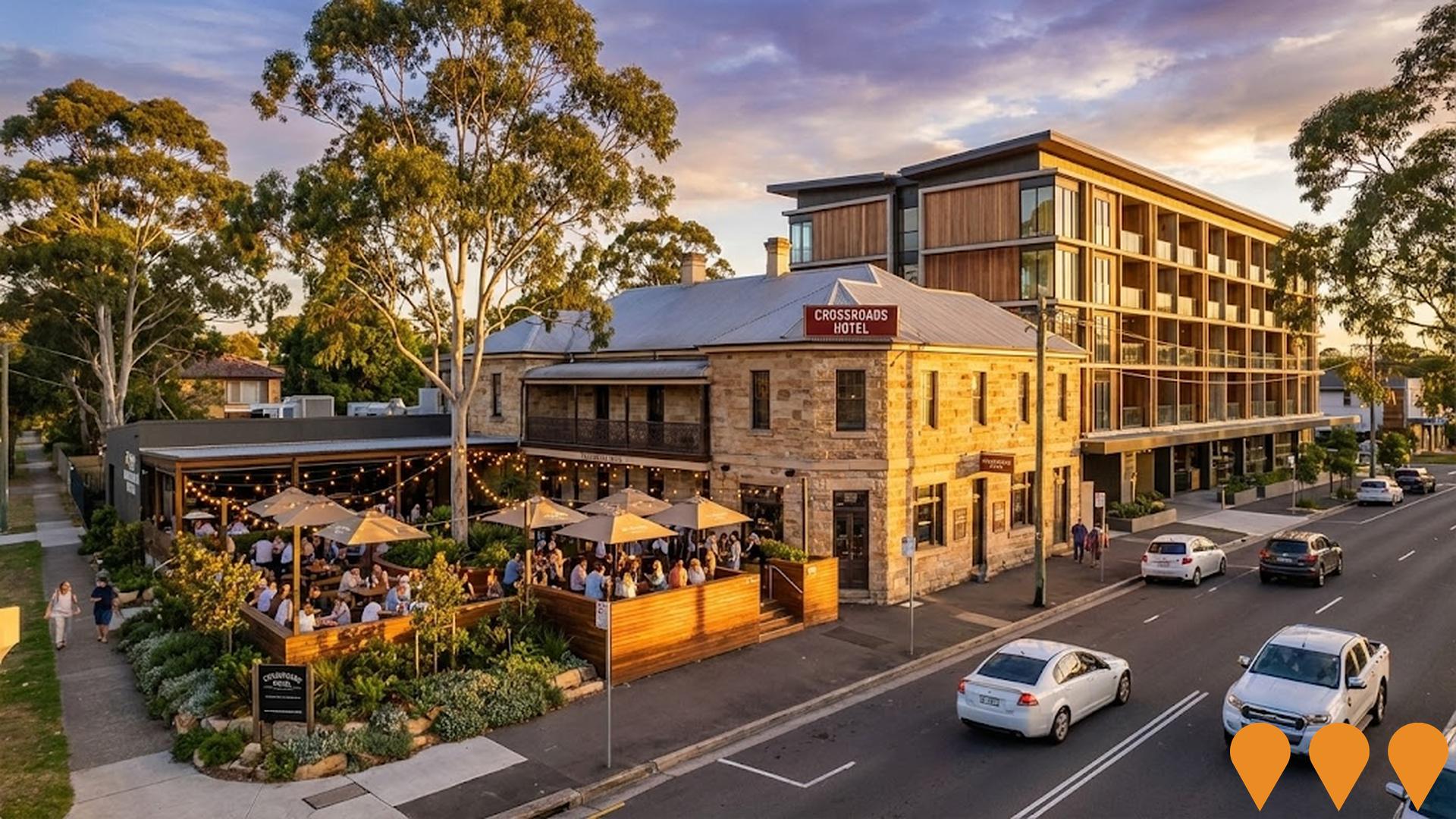Chart Color Schemes
This analysis uses ABS Statistical Areas Level 2 (SA2) boundaries, which can materially differ from Suburbs and Localities (SAL) even when sharing similar names.
SA2 boundaries are defined by the Australian Bureau of Statistics and are designed to represent communities for statistical reporting (e.g., census and ERP).
Suburbs and Localities (SAL) represent commonly-used suburb/locality names (postal-style areas) and may use different geographic boundaries. For comprehensive analysis, consider reviewing both boundary types if available.
est. as @ -- *
ABS ERP | -- people | --
2021 Census | -- people
Sales Activity
Curious about local property values? Filter the chart to assess the volume and appreciation (including resales) trends and regional comparisons, or scroll to the map below view this information at an individual property level.
Find a Recent Sale
Sales Detail
Population
Population growth drivers in Casula are slightly above average based on AreaSearch's ranking of recent, and medium term trends
Casula's population, as of Nov 2025, is approximately 17,076. This figure represents an increase of 492 people since the 2021 Census, which reported a population of 16,584. The change was inferred from ABS estimated resident population data of 16,804 in June 2024 and validated new addresses since then. This results in a density ratio of 2,415 persons per square kilometer, placing Casula in the upper quartile relative to national locations assessed by AreaSearch. Overseas migration contributed approximately 61.0% of overall population gains during recent periods.
AreaSearch uses ABS/Geoscience Australia projections for each SA2 area, released in 2024 with a base year of 2022. For areas not covered, NSW State Government's SA2 level projections are used, released in 2022 with a base year of 2021. Growth rates by age group from these aggregations are applied to all areas for years 2032 to 2041. Future population trends project an above median growth, with Casula expected to increase by 2,769 persons to 2041 based on the latest annual ERP population numbers, reflecting a total increase of 14.6% over the 17 years.
Frequently Asked Questions - Population
Development
AreaSearch analysis of residential development drivers sees Casula recording a relatively average level of approval activity when compared to local markets analysed countrywide
Casula has averaged approximately 78 new dwelling approvals annually over the past five financial years, totalling 390 homes. As of FY26, 35 approvals have been recorded. On average, 0.5 new residents per year per dwelling constructed were added between FY21 and FY25. This suggests that new construction is meeting or exceeding demand, providing more options for buyers and potentially driving population growth beyond current projections.
The average expected construction cost of new properties in Casula is $284,000, which is below regional norms, offering more affordable housing options. In FY26, $16.5 million worth of commercial approvals have been registered, indicating moderate levels of commercial development. Compared to Greater Sydney, Casula has around two-thirds the rate of new dwelling approvals per person and ranks among the 63rd percentile nationally in terms of areas assessed. Recent construction consists of 47.0% detached houses and 53.0% medium and high-density housing, marking a shift from existing housing patterns (currently 71.0% houses), likely due to decreasing developable land availability and evolving lifestyle preferences. Casula has an approximate population density of 240 people per dwelling approval, indicating a low-density market.
According to the latest AreaSearch quarterly estimate, Casula is projected to grow by 2,494 residents by 2041. With current construction levels, housing supply should adequately meet demand, creating favourable conditions for buyers while potentially enabling growth that exceeds current forecasts.
Frequently Asked Questions - Development
Infrastructure
Casula has very high levels of nearby infrastructure activity, ranking in the top 10% nationally
Changes in local infrastructure significantly impact an area's performance. AreaSearch has identified 21 projects that could affect the region. Notable initiatives include Crossroads Homemaker Centre Asset Enhancement, 60 Hill Road Lurnea Development, DA Approved Child Care & Medical Centre, Casula, and M5 Motorway Westbound Upgrade. The following list details those likely to be most relevant.
Professional plan users can use the search below to filter and access additional projects.
INFRASTRUCTURE SEARCH
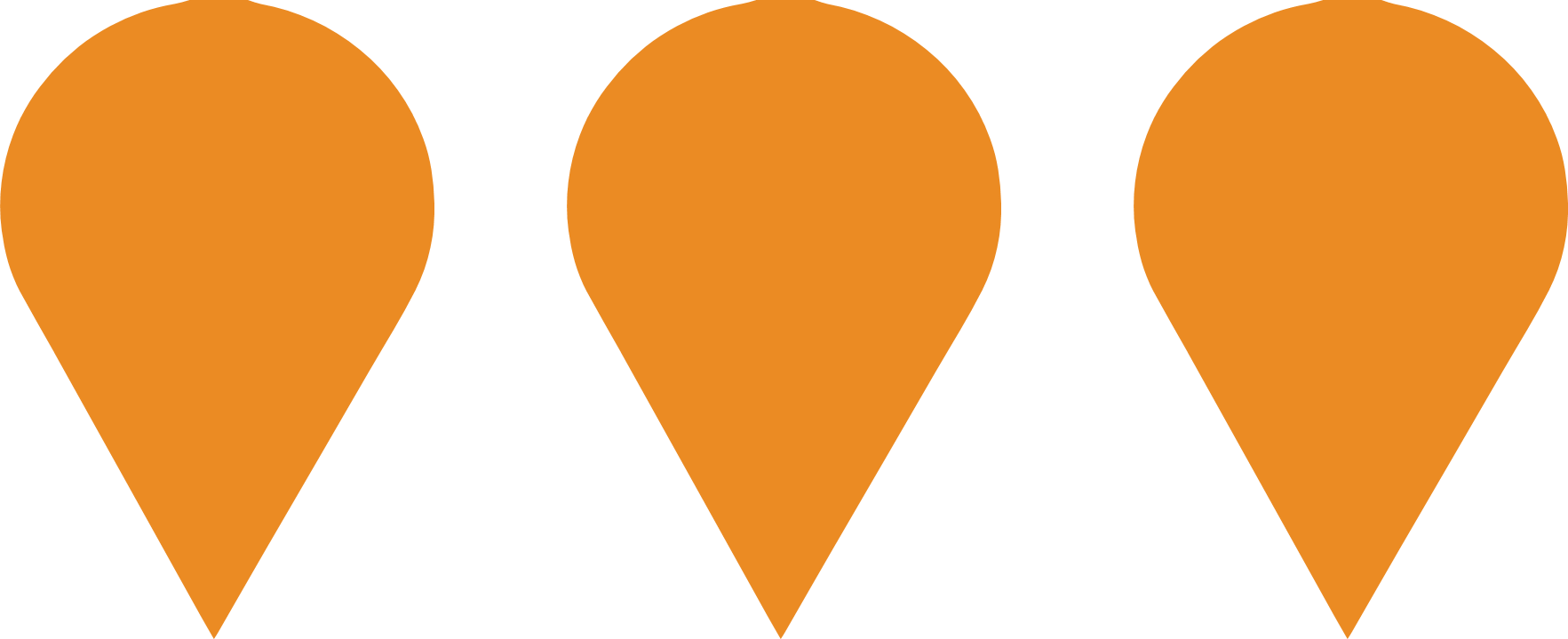 Denotes AI-based impression for illustrative purposes only, not to be taken as definitive under any circumstances. Please follow links and conduct other investigations from the project's source for actual imagery. Developers and project owners wishing us to use original imagery please Contact Us and we will do so.
Denotes AI-based impression for illustrative purposes only, not to be taken as definitive under any circumstances. Please follow links and conduct other investigations from the project's source for actual imagery. Developers and project owners wishing us to use original imagery please Contact Us and we will do so.
Frequently Asked Questions - Infrastructure
West Glenfield Development
A transformative urban renewal project delivering more than 3,900 new homes over 15 years, featuring a vibrant mixed-use town centre with shopping, dining and community facilities. The development prioritizes sustainability with carbon-neutral, water-positive and zero-waste goals, alongside 30 hectares of new public open space, parks, and sporting fields. Located next to Glenfield Train Station with connections to Sydney, Campbelltown, Liverpool, Parramatta and the future Western Sydney Airport. The project includes detached houses, terraces, townhouses and apartments from 4 to 22 storeys, with up to 5% affordable housing. Planning proposal expected mid-2025, with civil works commencing in 2026 and first housing sites available in 2027.
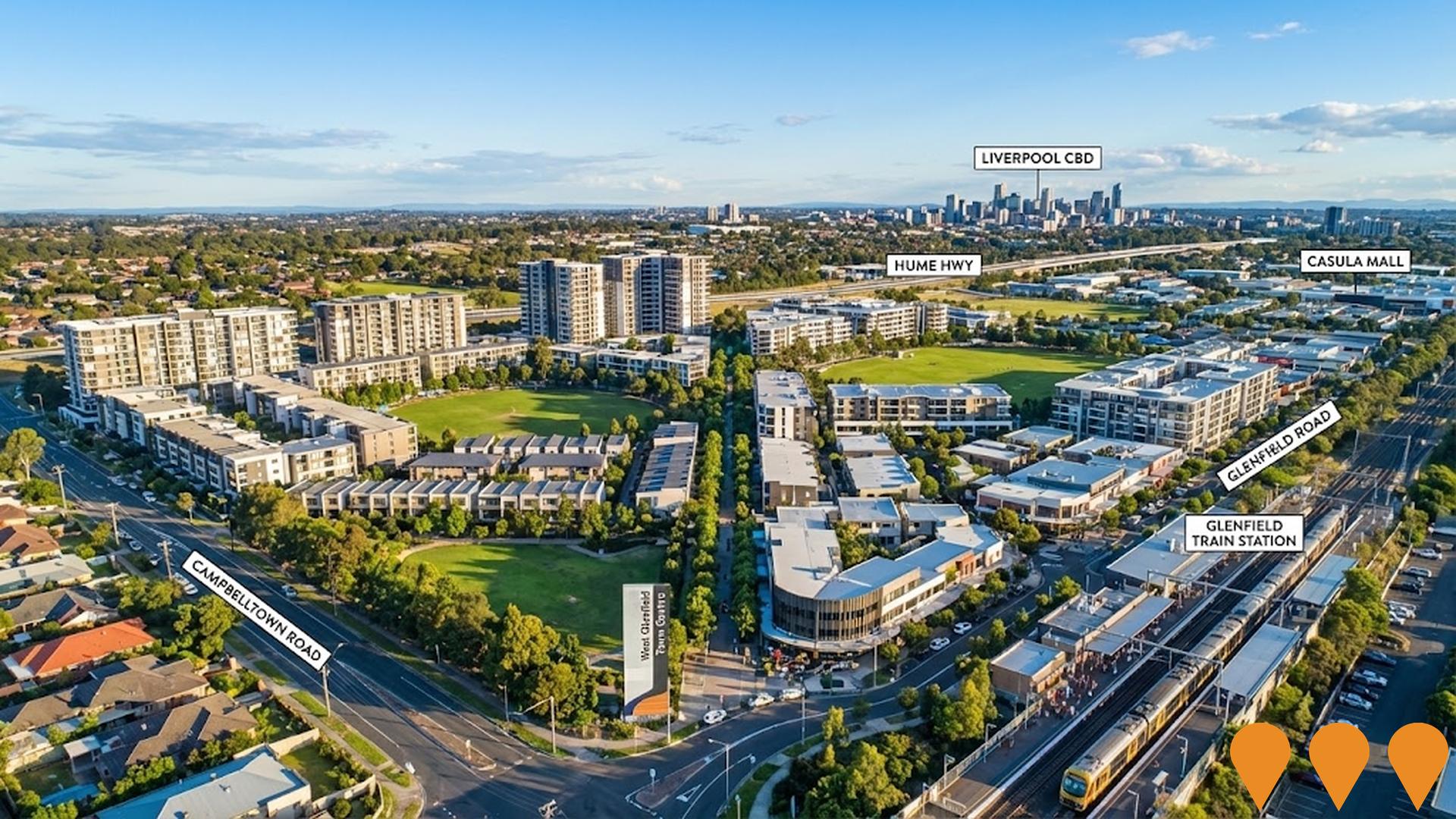
Crossroads Homemaker Centre Asset Enhancement
Large-format retail centre enhancement project on 14.3 hectare site featuring 38 homewares retailers. LaSalle Investment Management identified significant development upside with opportunities to expand and redevelop existing buildings. Recent $3M refurbishment completed with new food and beverage precinct. Centre serves over 4 million customers annually and is the fifth largest large-format retail centre in Australia.
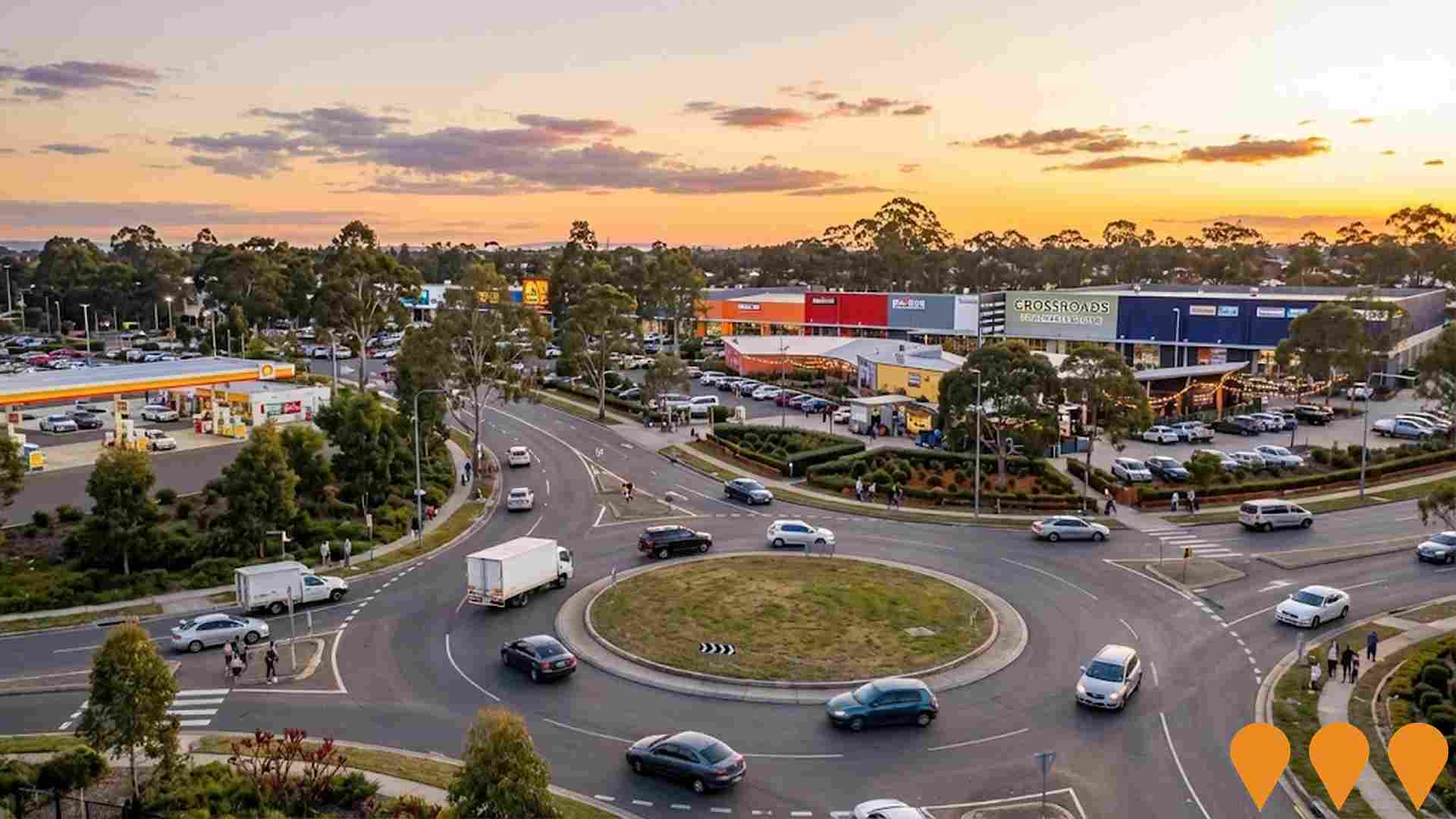
DA Approved Child Care & Medical Centre, Casula
DA-approved site in Casula for a 114-place childcare centre and an approximately 620 m2 medical centre with about 17 consultation rooms and a pharmacy. Prominent Hume Highway frontage on a 3,562 m2 lot, positioned ~5 km from Liverpool CBD and ~4 km from Edmondson Park Station. Currently offered for sale by Colliers; consent issued by Liverpool City Council.
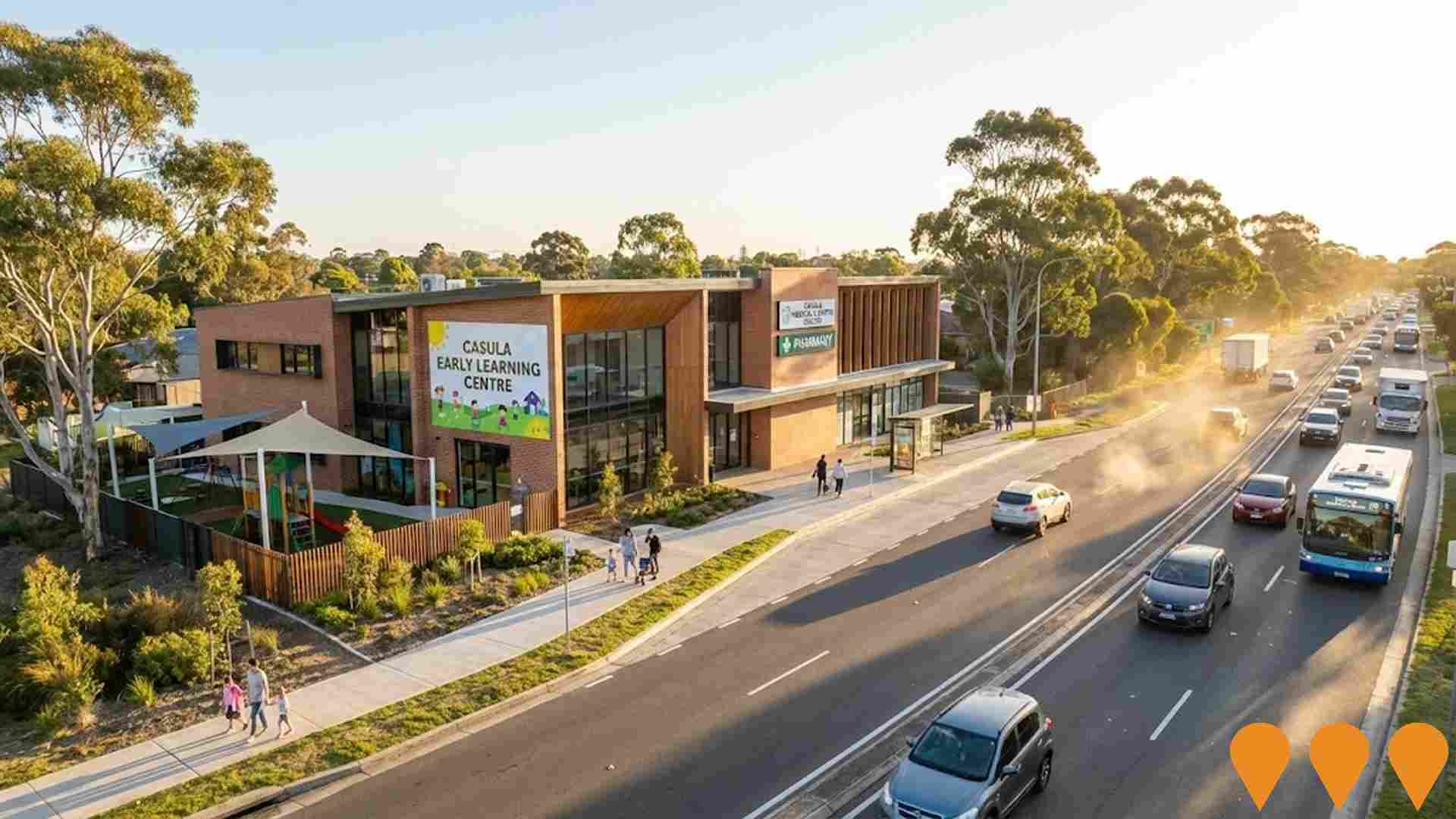
M5 Motorway Westbound Upgrade
Upgrade of the M5 Motorway westbound between Moorebank Avenue and the Hume Highway to reduce congestion and improve safety. Key features include a new three-lane bridge over the Georges River and rail corridors, removal of the traffic weave, additional lanes, improved freight access, and a new shared user path for pedestrians and cyclists.
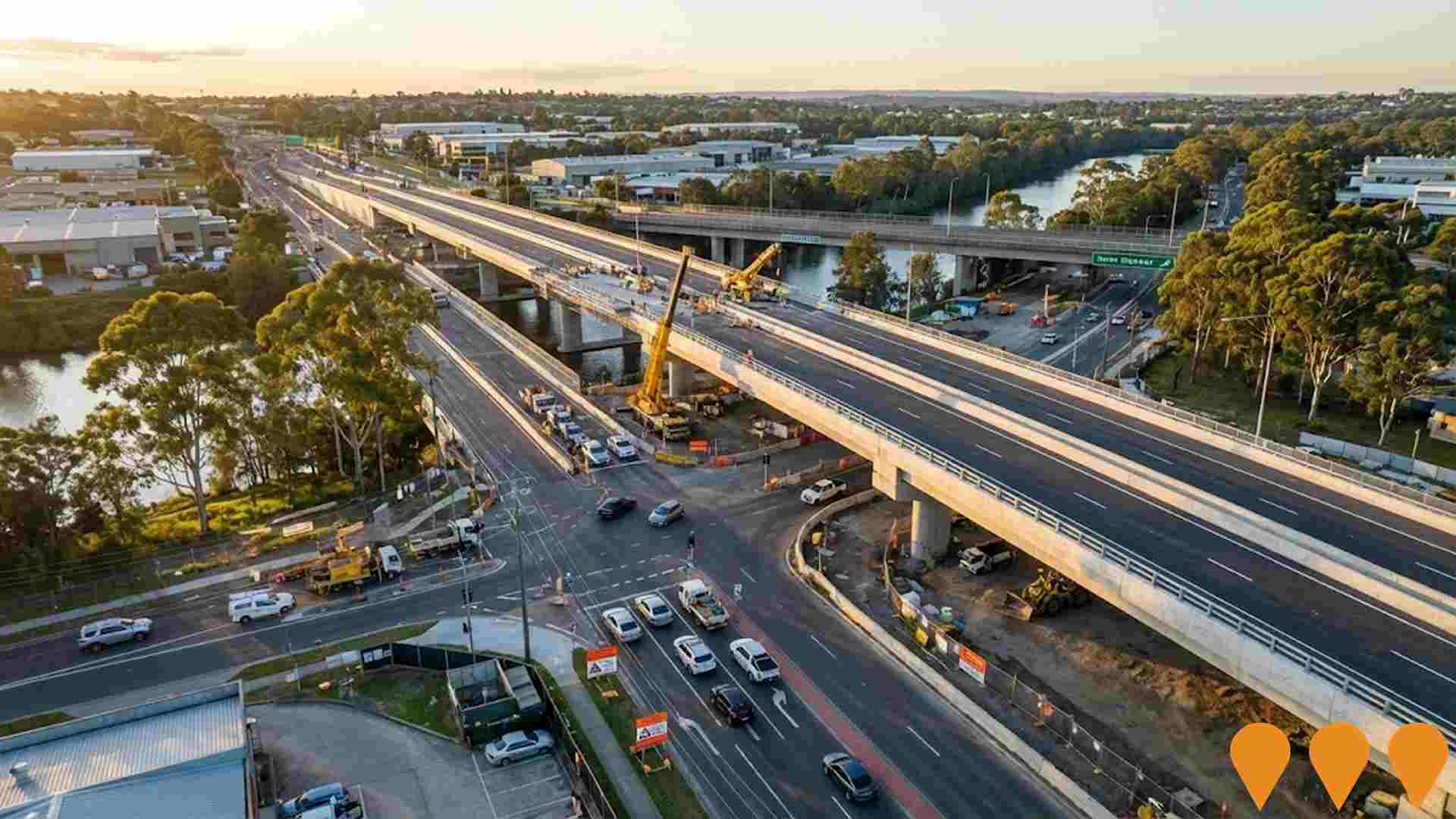
Avala Apartments Miller
Residential apartment development featuring 145 apartments across 3 buildings (9 storeys). Will include 380 car spaces, 66 bike spaces and communal open space areas.
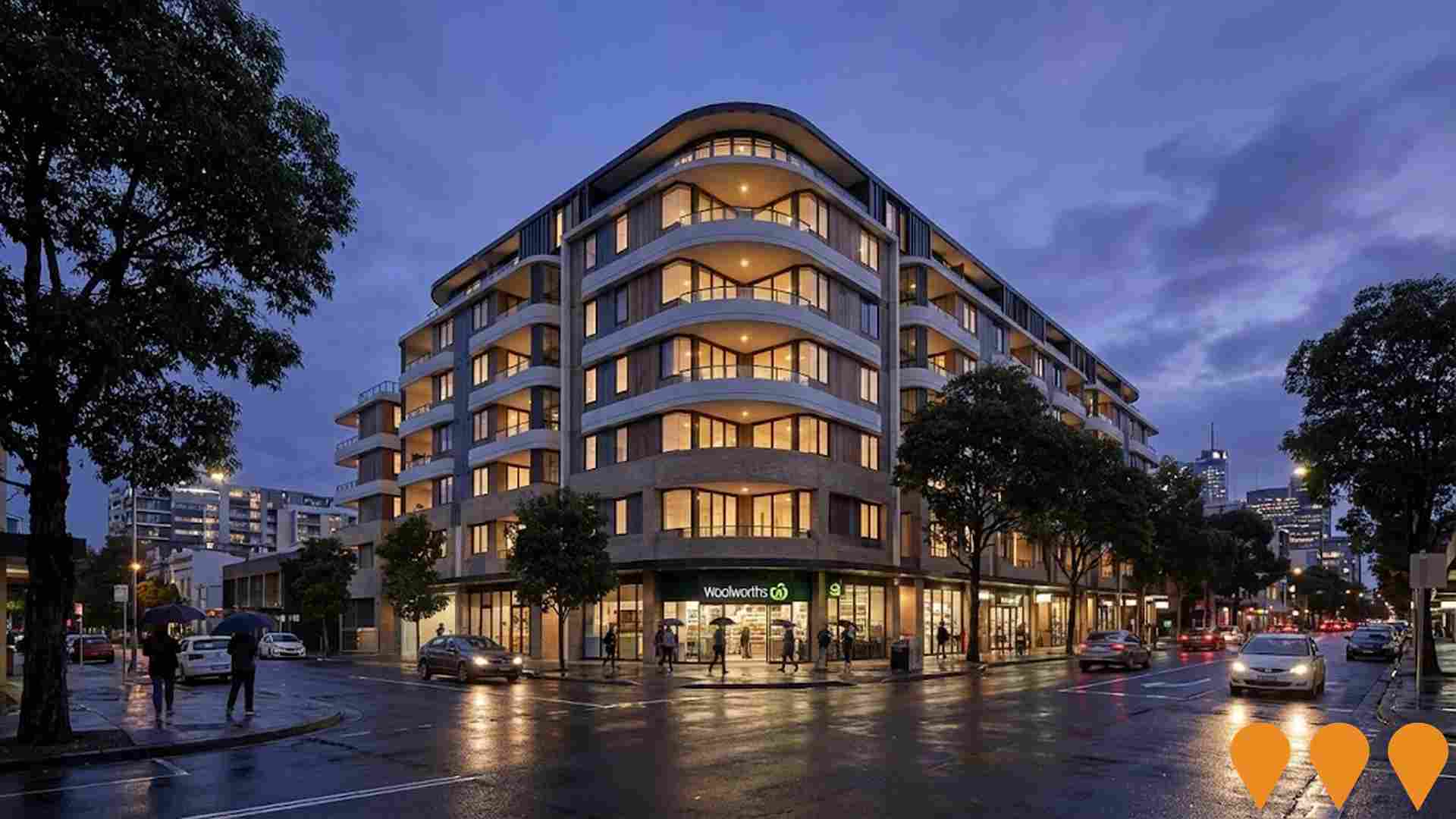
Prestons Industrial Estate
Large-scale industrial warehouse and distribution centre development by ESR Group (formerly LOGOS Property). Prestons Logistics Estate featuring 141,000sqm of world-class logistics facilities with tenants including Toll, Volvo Group Australia and others.
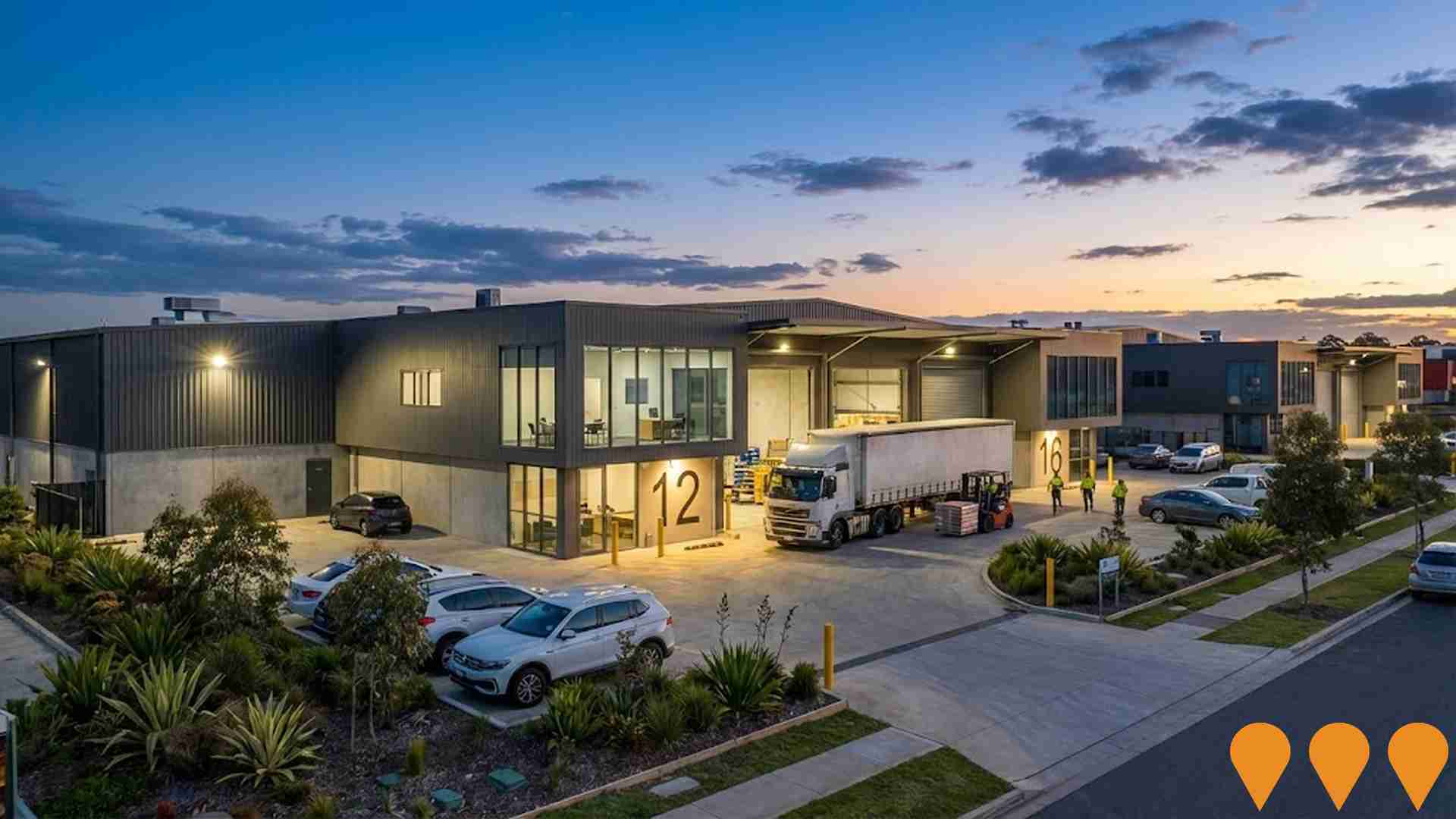
Hurlstone Agricultural High School Redevelopment
The Hurlstone Agricultural High School Redevelopment involves modernizing the school's infrastructure at its new Glenfield location. The project includes new classrooms, advanced laboratories, agricultural facilities, and boarding accommodations to enhance specialized agricultural and scientific education programs. The redevelopment aims to provide state-of-the-art facilities to support student learning and research.
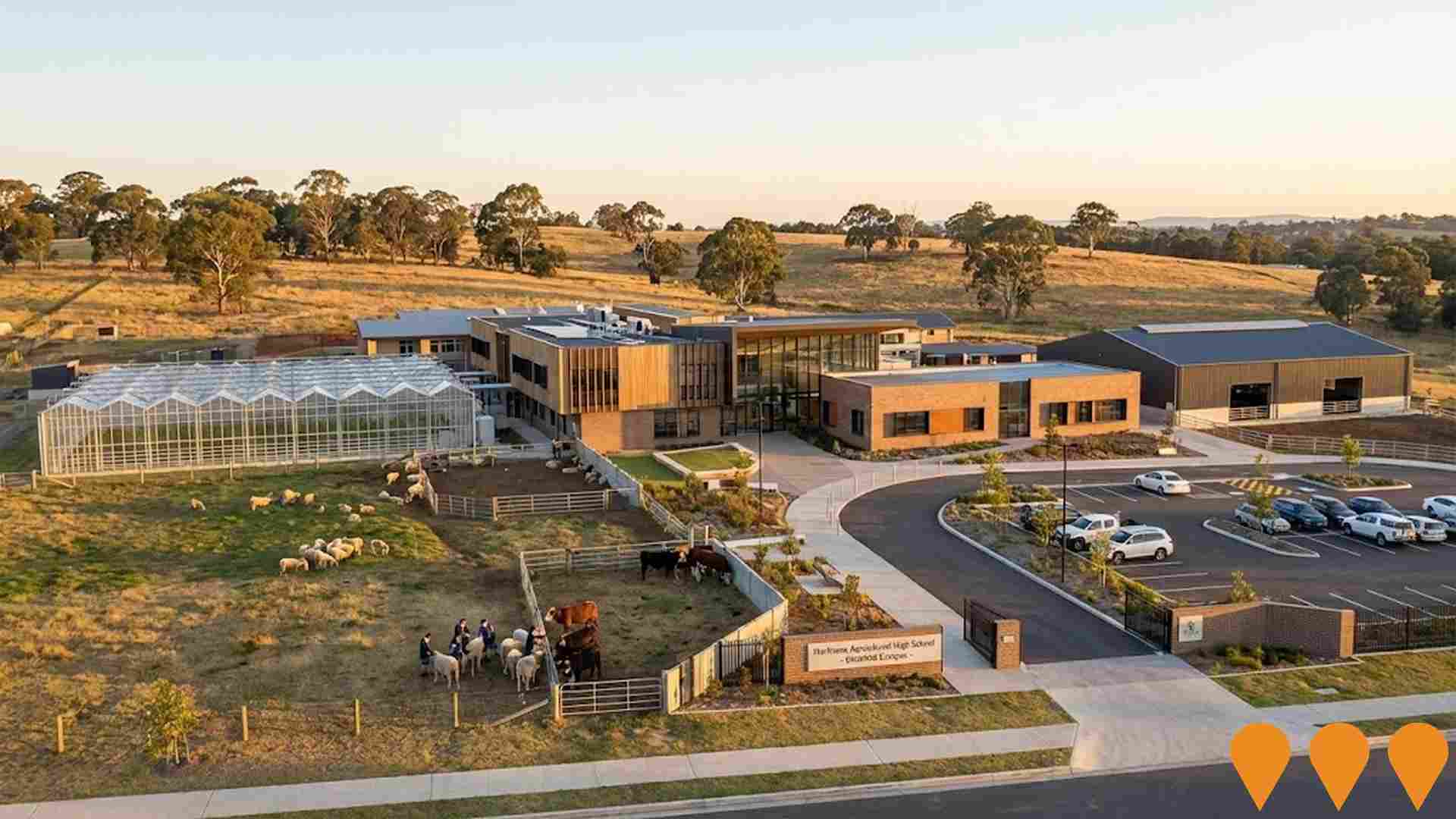
Prestons Grove Estate
Residential subdivision development in Prestons featuring 33 registered lots for modern family living. Located near Austral Bricks Road with excellent connectivity to M5 and M7 highways, marketed by Australian Land & Housing.
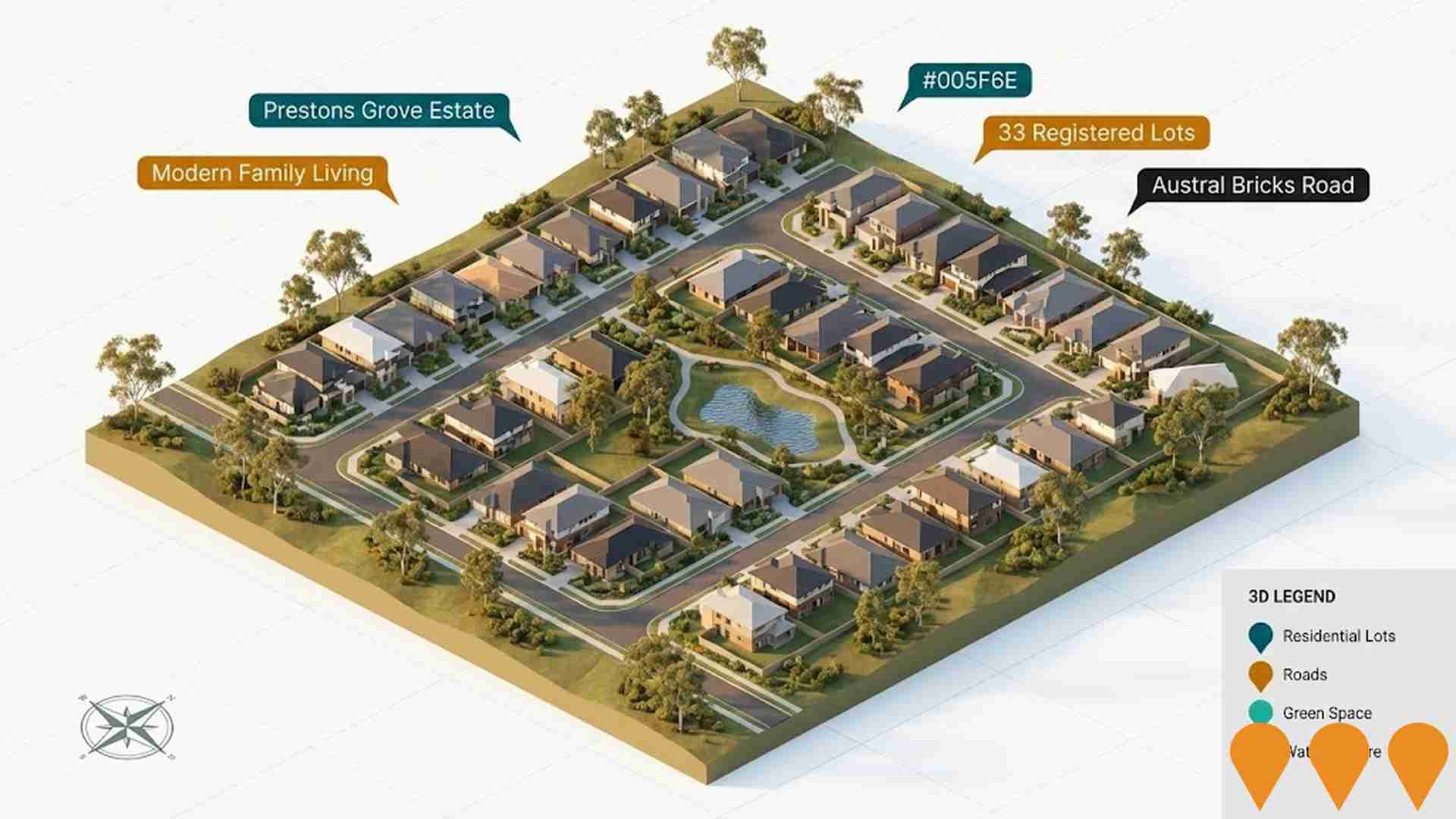
Employment
Casula has seen below average employment performance when compared to national benchmarks
Casula has a skilled workforce with significant representation in essential services sectors. The unemployment rate was 4.1% as of September 2025, with an estimated employment growth of 4.9% over the past year.
As of that date, 8,435 residents were employed, with an unemployment rate aligned to Greater Sydney's 4.2%. Workforce participation in Casula was lower at 51.8%, compared to Greater Sydney's 60.0%. Employment is concentrated in health care & social assistance, retail trade, and manufacturing. Transport, postal & warehousing shows notable concentration with employment levels at 1.6 times the regional average.
Conversely, professional & technical services have lower representation at 5.7% compared to the regional average of 11.5%. The area appears to offer limited local employment opportunities based on Census data comparisons. In the 12-month period ending September 2025, employment increased by 4.9%, labour force grew by 4.0%, and unemployment fell by 0.8 percentage points. This contrasts with Greater Sydney where employment grew by 2.1% and unemployment rose slightly. State-level data to 25-Nov-25 shows NSW employment contracted by 0.03%, losing 2,260 jobs, while the state unemployment rate was 3.9%. Nationally, the unemployment rate was 4.3%. Jobs and Skills Australia's national employment forecasts from May-25 project overall employment growth of 6.6% over five years and 13.7% over ten years. Applying these projections to Casula's employment mix suggests local employment could increase by 6.3% over five years and 13.3% over ten years, though this is a simplified extrapolation for illustrative purposes and does not account for local population projections.
Frequently Asked Questions - Employment
Income
Income levels sit below national averages according to AreaSearch assessment
According to AreaSearch's aggregation of the latest postcode level ATO data released for financial year 2022, Casula SA2 had a median income among taxpayers of $46,429. The average income stood at $54,587. This was lower than the national average and compared to levels of $56,994 and $80,856 across Greater Sydney respectively. Based on Wage Price Index growth of 12.61% since financial year 2022, current estimates for median income would be approximately $52,284 as of September 2025. Average income is estimated to be around $61,470 by the same period. From the Census conducted in 2021, individual incomes lagged at the 18th percentile with a weekly income of $645. Household income performed better at the 48th percentile. Income analysis revealed that 32.8% of the population (5,600 individuals) fell within the $1,500 - $2,999 income range, mirroring the region where 30.9% occupied this bracket. Housing affordability pressures were severe with only 80.0% of income remaining after housing costs, ranking at the 45th percentile. The area's SEIFA income ranking placed it in the 5th decile.
Frequently Asked Questions - Income
Housing
Casula is characterized by a predominantly suburban housing profile, with above-average rates of outright home ownership
Casula's dwelling structures, as per the latest Census, consisted of 71.2% houses and 28.8% other dwellings (semi-detached, apartments, 'other' dwellings). In comparison, Sydney metro had 63.3% houses and 36.8% other dwellings. Home ownership in Casula stood at 27.7%, with mortgaged dwellings at 39.4% and rented dwellings at 32.9%. The median monthly mortgage repayment was $2,167, aligning with Sydney metro's average, while the median weekly rent was $450, compared to Sydney metro's $400. Nationally, Casula's mortgage repayments were higher than the Australian average of $1,863, and rents were substantially above the national figure of $375.
Frequently Asked Questions - Housing
Household Composition
Casula features high concentrations of family households, with a higher-than-average median household size
Family households account for 81.3% of all households, including 47.2% couples with children, 18.3% couples without children, and 14.7% single parent families. Non-family households constitute the remaining 18.7%, with lone person households at 17.1% and group households comprising 1.7%. The median household size is 3.2 people, larger than the Greater Sydney average of 3.0.
Frequently Asked Questions - Households
Local Schools & Education
Educational outcomes in Casula fall within the lower quartile nationally, indicating opportunities for improvement in qualification attainment
The area's university qualification rate is 24.8%, significantly lower than Greater Sydney's average of 38.0%. Bachelor degrees are the most common at 17.9%, followed by postgraduate qualifications (5.4%) and graduate diplomas (1.5%). Vocational credentials are prevalent, with 31.2% of residents aged 15+ holding them - advanced diplomas at 11.4% and certificates at 19.8%. Educational participation is high, with 33.0% of residents currently enrolled in formal education, including 11.0% in primary, 9.6% in secondary, and 6.0% in tertiary education.
Educational participation is notably high, with 33.0% of residents currently enrolled in formal education. This includes 11.0% in primary education, 9.6% in secondary education, and 6.0% pursuing tertiary education.
Frequently Asked Questions - Education
Schools Detail
Nearby Services & Amenities
Transport
Transport servicing is high compared to other areas nationally based on assessment of service frequency, route connectivity and accessibility
Casula has 102 active public transport stops operating. These include a mix of train and bus services. There are 59 individual routes servicing these stops, collectively providing 4,808 weekly passenger trips.
The accessibility of transport in Casula is rated as excellent, with residents typically located 149 meters from the nearest stop. On average, there are 686 trips per day across all routes, which equates to approximately 47 weekly trips per individual stop.
Frequently Asked Questions - Transport
Transport Stops Detail
Health
Casula's residents are extremely healthy with prevalence of common health conditions low among the general population though higher than the nation's average across older, at risk cohorts
Analysis of health metrics indicates strong performance across Casula. The prevalence of common health conditions among the general population is low but exceeds the national average for older and at-risk cohorts. Private health cover is very low, with approximately 47% of the total population (~8059 people), compared to 50.4% in Greater Sydney and a national average of 55.3%.
The most common medical conditions are arthritis (6.6%) and diabetes (6.1%), while 74.4% of residents declare themselves completely clear of medical ailments, compared to 76.4% across Greater Sydney. Casula has 15.0% of residents aged 65 and over (2556 people), which is higher than the 12.8% in Greater Sydney. Health outcomes among seniors present challenges requiring more attention than the broader population.
Frequently Asked Questions - Health
Cultural Diversity
Casula is among the most culturally diverse areas in the country based on AreaSearch assessment of a range of language and cultural background related metrics
Casula has a population where 46.8% were born overseas, with 59.7% speaking languages other than English at home. Christianity is the predominant religion in Casula, accounting for 51.7%. Islam's representation is notably higher in Casula at 22.0%, compared to Greater Sydney's 17.4%.
The top three ancestry groups are Other (27.5%), Australian (11.9%), and English (10.1%). Notably, Serbian (1.8%) and Lebanese (7.3%) ethnicities are overrepresented in Casula compared to regional figures of 2.4% and 5.2%, respectively. Spanish ethnicity is present at 1.1%, slightly higher than the regional average of 0.8%.
Frequently Asked Questions - Diversity
Age
Casula's population is slightly younger than the national pattern
Casula's median age is nearly 36 years, close to Greater Sydney's average of 37, which is slightly below Australia's median age of 38. Compared to Greater Sydney, Casula has a higher proportion of residents aged 5-14 (14.6%) but fewer residents aged 25-34 (12.9%). Between the 2021 Census and now, the percentage of residents aged 65-74 has increased from 7.8% to 8.3%, while the percentage of those aged 0-4 has decreased from 6.9% to 6.3%. By 2041, Casula's age profile is projected to change significantly. The 75-84 cohort is expected to grow by 77%, adding 603 residents to reach 1,391. Residents aged 65 and above will drive 53% of population growth, indicating demographic aging trends. Conversely, the 0-4 and 35-44 cohorts are projected to experience population declines.
